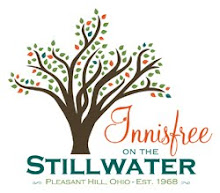So, after all of my splitting of hairs about what I think about journalism, I think it is important to create a definition of what I think journalism should be. Before I can do so, however, I think it is important to identify my own assumptions--my bias--about how journalism should work. Below I deal with what I believe are several foundational issues that help inform the subject:
There is more to journalism than just reporting the facts
The most basic form of journalism is reporting facts. I do not argue that point. What I dispute is that reporting facts is all there is to journalism. I believe that society created journalism because it recognizes that not everyone is willing or capable of doing what it asks journalists to do: search out the facts, evaluate the facts against the norms of society, and reach conclusions based on the facts and those norms. Society wants to be presented with those conclusions from journalists in the same way they want diagnoses from doctors and rulings from judges.
Journalists are supposed to be a part of the community
I strongly believe that journalists should be a part of the community. This is a complicated issue that delves into independence and objectivity, nevertheless I believe that journalists should be responsive to their communities rather than to their editors and corporations. Journalists should know the places that they live, the people in those places, and what concerns those people. Granted, sometimes it is the journalists' role to reveal something the community may have missed, but this role never becomes telling the community what is news.
Objectivity does not have to be neutral
I do not believe that journalists have to be neutral in order to be objective. Objectivity means reporting the facts, even if those facts disagree with one's opinions or beliefs, but it does not mean that journalists have to set aside their opinions and beliefs in order to report. Certainly, there is a risk of failing to report facts because of one's already held opinions, but it is avoiding this risk that separates journalists from other writers.
Further, the simple fact is that no one deals with facts neutrally and journalists should deal with this fact effectively by being upfront about their position and by explaining why they think the way they do. This kind of reporting adds body to reporting that is otherwise missing.
Journalism is a means not an end
Finally, I believe that journalists must always remember that their profession is a means of keeping society informed, not the definition of information. Journalism functions in concert with the other aspects of a free society to help provide its citizens a complete picture. Citizens are free to pick and choose from among those aspects to decide for themselves what the facts are. While journalism may act as a check to government and corporate interests, journalists must never forget that the people act as a check to journalism.
30 May 2008
Subscribe to:
Post Comments (Atom)

No comments:
Post a Comment